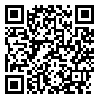Volume 15 - Legal Innovation
MLJ 2021, 15 - Legal Innovation: 659-672 |
Back to browse issues page
Download citation:
BibTeX | RIS | EndNote | Medlars | ProCite | Reference Manager | RefWorks
Send citation to:



BibTeX | RIS | EndNote | Medlars | ProCite | Reference Manager | RefWorks
Send citation to:
Dowlatabadi S S, Velayati M, Pouresmaeili A. Legal Challenges and Gaps of Government Tenders and Auctions in the Iranian Legal System. MLJ 2021; 15 :659-672
URL: http://ijmedicallaw.ir/article-1-1435-en.html
URL: http://ijmedicallaw.ir/article-1-1435-en.html
1- Department of Law, Neishabour Branch, Islamic Azad University, Neishabour, Iran
2- Department of Jurisprudence and Fundamentals of Islamic Law, Sabzevar Branch, Islamic Azad University, Sabzevar, Iran
3- Department of Law, Faculty of Theology and Islamic Studies, Hakim Sabzevari University, Sabzevar, Iran
2- Department of Jurisprudence and Fundamentals of Islamic Law, Sabzevar Branch, Islamic Azad University, Sabzevar, Iran
3- Department of Law, Faculty of Theology and Islamic Studies, Hakim Sabzevari University, Sabzevar, Iran
Abstract:
Background and Aim: In each financial year, in order to provide public procurement and in order to achieve development and infrastructure goals, the executive bodies of the country perform various transactions in the form of tenders and auctions. Government procurement in other parts of the world is covered by the Public Procurement Law. Our goal in this article is to explain the challenges and limitations of government tenders and auctions.
Materials and Methods: This descriptive-analytical article has been prepared by using documentary method and filing tool.
Results: The findings indicate that; With the formation of the new paradigm of government privatization and downsizing, bidding or the procurement process has been proposed as a means of reducing government duties. Prevents government corruption and strengthens the private sector. Unfortunately, the Law on Tenders, adopted in 2004, failed to demonstrate the effectiveness needed to ensure the principles of legal standards accepted in tenders. The gaps and challenges of this law have led to the spread of corruption in tenders. And the law on holding tenders approved in 2004, also failed to show the necessary efficiency to guarantee the principles of legal standards and accepted by itself, in the matter of tenders. Gaps and challenges of this law have led to the spread and development of corruption in tenders.
Ethical considerations: From the beginning to the end of the article, it has been prepared and compiled with adherence to the principles of honesty and trustworthiness.
Conclusion: One of the new laws regulating the transactions of government agencies is the law on tenders and its executive regulations. At the beginning of the implementation of the law, government agencies had many ambiguities and challenges in implementation, most of which have been resolved after the adoption of its executive regulations. According to research, one of the main challenges in government transactions is the restricted bidding process. Which has also led to corruption. In this regard, serious challenges, such as unclear method of exercising the powers of the bidder, how to evaluate the quality of the bidder, not registering tenders in the tender information database, not allowing the bidder to open the envelopes, non-responsiveness of the bidder to the bidder in The executive context of this law is observed.
Cite this article as: Dowlatabadi SS, Velayati M, Pouresmaeili A. Legal Challenges and Gaps of Government Tenders and Auctions in the Iranian Legal System. Medical Law Journal 2021; Legal Innovation.
Materials and Methods: This descriptive-analytical article has been prepared by using documentary method and filing tool.
Results: The findings indicate that; With the formation of the new paradigm of government privatization and downsizing, bidding or the procurement process has been proposed as a means of reducing government duties. Prevents government corruption and strengthens the private sector. Unfortunately, the Law on Tenders, adopted in 2004, failed to demonstrate the effectiveness needed to ensure the principles of legal standards accepted in tenders. The gaps and challenges of this law have led to the spread of corruption in tenders. And the law on holding tenders approved in 2004, also failed to show the necessary efficiency to guarantee the principles of legal standards and accepted by itself, in the matter of tenders. Gaps and challenges of this law have led to the spread and development of corruption in tenders.
Ethical considerations: From the beginning to the end of the article, it has been prepared and compiled with adherence to the principles of honesty and trustworthiness.
Conclusion: One of the new laws regulating the transactions of government agencies is the law on tenders and its executive regulations. At the beginning of the implementation of the law, government agencies had many ambiguities and challenges in implementation, most of which have been resolved after the adoption of its executive regulations. According to research, one of the main challenges in government transactions is the restricted bidding process. Which has also led to corruption. In this regard, serious challenges, such as unclear method of exercising the powers of the bidder, how to evaluate the quality of the bidder, not registering tenders in the tender information database, not allowing the bidder to open the envelopes, non-responsiveness of the bidder to the bidder in The executive context of this law is observed.
Cite this article as: Dowlatabadi SS, Velayati M, Pouresmaeili A. Legal Challenges and Gaps of Government Tenders and Auctions in the Iranian Legal System. Medical Law Journal 2021; Legal Innovation.
Type of Study: Original Article |
Received: 2021/04/29 | Accepted: 2021/11/4
Received: 2021/04/29 | Accepted: 2021/11/4
Send email to the article author
| Rights and permissions | |
 |
This work is licensed under a Creative Commons Attribution-NonCommercial 4.0 International License. |






